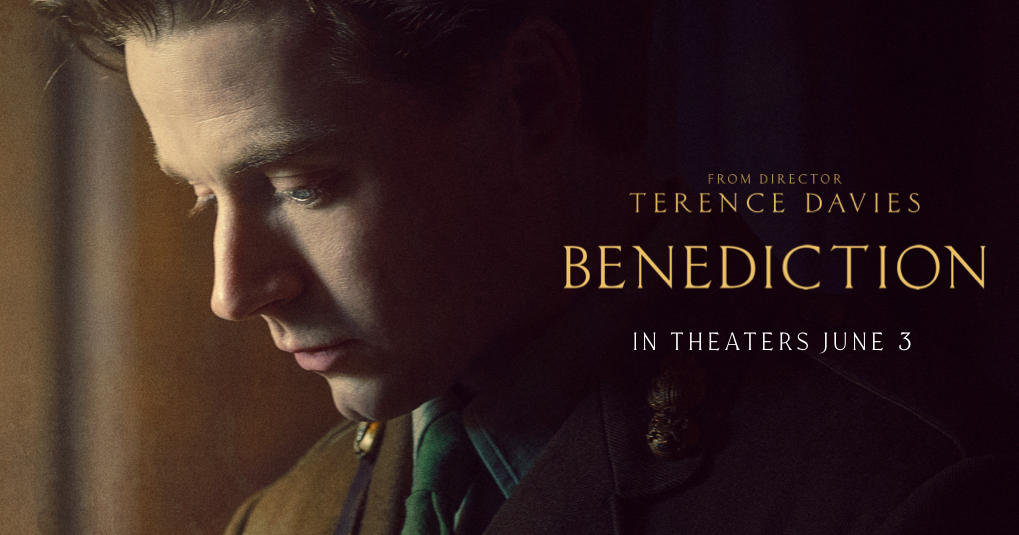BENEDICTION

I recently watched the Terence Davies's film Benediction (2022) and found it to be extremely thought provoking, if greatly flawed.
Without boring anyone with why I think it's flawed, let me just say that I very much appreciated the existential complexities that were expertly conveyed in the portrayal of the war poet and central protagonist of the movie - Siegfried Sassoon.
First, there was the trauma of war, followed by the trauma of readjusting to society post war and then there was the transient passion and alienation of being a homosexual in Britain at a time when being gay was illegal. And then, ultimately and perhaps most importantly, there is the disillusionment of not being recognised in your lifetime and the realisation that though you may hit upon many truths it may not be the ultimate truth that your poet peers (Wilfred Owen) discovered at an even greater cost than your own.
Strangely, I couldn't quite help but get the feeling that Davies's own identification with the spiky Sassoon was in someways a mirror of his own feeling within the British film industry. Here is a man who has a hundred times the talent of his peers such as Loach and Leigh but who often gets ignored in Awards seasons. His The House Of Mirth made on a fraction of the budget of Martin Scorcese's The Age Of Innocence still holds up as perhaps the best Edith Wharton cinematic adaption to date.
I remember well a good friend of mine pointing out the beautiful montage sequence in the film set to Mozart's sublime trio from Cosi Fan Tutte.
My late father often liked to remind me that quite often the hacks enjoy the glory while the true artists remain in the shadows.
I don't think Terence Davies needs to feel particularly hard done by. He's had his fair share of praise over the years and this should only increase over time as his cinematic legacy becomes further cemented.
But if there's one thing I know, it only takes one scene in a film sometimes to convince me of its greatness and in Benediction it is the final scene where (spoiler alert) a mid life Siegfried Sasson recalls the image of a disabled soldier in a wheelchair as Disabled - one of Owens's greatest poems is recited with Siegfried's voiceover accompanied by Vaughan Williams mythic Variation On A Theme By Thomas Tallis as the distraught Sassoon loses control of his emotions sitting in solitude on a park bench.
I remember having a long conversation with Davies over the telephone 13 years ago. I was trying to convince him to direct an opera based on Bruce Chatwin's On The Black Hill which I was attempting to write the libretto for. He was interested to a point but spent much of the conversation preferring to talk about Bruckner, his musical obsession, and how that often maligned and misunderstood composer was treated by his peers. I didn't have a huge amount of sympathy at the time as I was still recovering from the trauma of listening to his fifth symphony conducted by Otto Klemperer which I'm happy to declare I have absolutely no intention of revisiting in my lifetime. They say the Devil is in the detail and in recalling that conversation with the director I have made one observation. In the director's love of Bruckner I understand much better the identification with Sassoon whom he portrays as a man who can not truly belong with anyone or anywhere. Out of love and out of time.
DR. RIVERS
Are you searching for truth?
SIEGFRIED SASSOON Isn’t everyone?
DR. RIVERS
And if you find it - what then?
SIEGFRIED SASSOON Peace of mind. Contentment. No longer yearning for what has been lost.
In a key scene early in the film, Sassoon declares he will find peace of mind when he finds the truth.
But the reality of finding the truth is quite the opposite for Sassoon when in that final scene we see that the truth is, in fact, a disabled soldier, having lost both his legs, remembering the innocent pre-war days before becoming an unwitting invalid as Siegfried recalls Owen's poem in his mind.
For this scene alone, Terence Davies owns cinema in 2022.